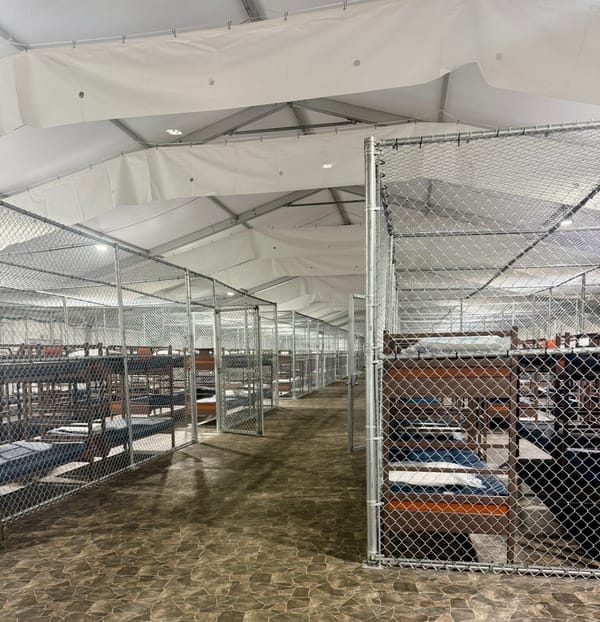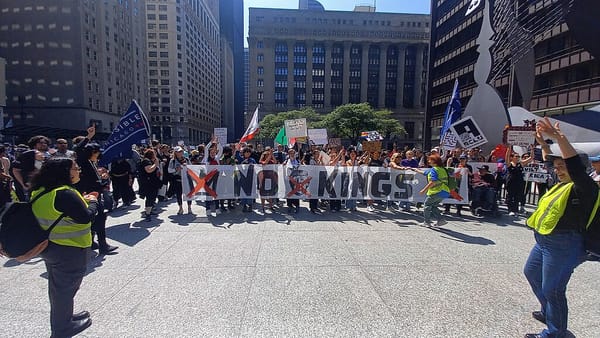Italy's High Schoolers Protest Unpaid Labor And Dangerous Working Conditions

At the end of February, thousands of high school students gathered in streets and squares in 40 cities around Italy. They held signs that read “It could have been me” or “You shouldn’t die of school”. The protests were sparked by the death of a fellow student during a mandatory work placement. Italy’s high schoolers are now demanding the suspension of the program which they deem an abusive labor practice.
On January 21st, Lorenzo Parelli was due to finish his internship in a factory in northern Italy as part of a school work experience program. But he never got to go home. In a tragic accident, he was hit by a falling iron bar and died. The 18-year-old was working as an unpaid intern at a metalworking factory in the northern Italian town Lauzacco. The placement was part of the obligatory “alternanza scuola-lavoro”, a program consisting of unpaid internships in various sectors including factories, shops or hospitals.
The death of Parelli was followed shortly by the death of another high schooler, 16-year-old Giuseppe Lenoci, in a road accident while traveling for his internship. The two deaths have sparked a wave of student protests across Italy against the obligatory work placements and the events have brought the program under scrutiny.
The “alternanza scuola-lavoro” system was brought in in 2015 as part of the higher education program in Italy under the then prime minister Matteo Renzi. The mandate requires students to participate in internships of at least 90 hours in a professional context in order to graduate.
The system has been heavily criticized over the years. Protests were held in 2018 by students calling out the “exploitative” program. For journalist Roberto Ciccarelli, it “transforms students into performers in the labor market” by styling unpaid labor as an educational experience. In some specialized schools, students may be lucky enough to carry out their placement in activities like law firms or newspaper offices. But many others find themselves working in oil refineries, as waiters in restaurants, or in industry. Some students in Sicily are even forced to take their work placement with the army.
Niccolò De Luca, a 17-year-old Roman student who is a member of the student protest movement La Lupa, told news site AJ+, “This is clearly an institutionalized classist system meant to prime the privileged for white-collar work and to extract free labor from the poor. It is a way of inserting youth into the mechanisms of production from a young age.”
Throughout February, Italy’s school students gathered en masse in piazzas across the country and occupied their school buildings to protest against the internship requirement. Demonstrators are calling for a halt to the work experience program until adequate remuneration and workplace safety can be guaranteed. “The death of Lorenzo Parelli has opened the eyes of the country to the condition of students and the role of reforms, like that of work experience, which try to tie school ever tighter with the laws of the market,” Flavia Vignanti, a student at the Liceo Tasso in Rome, told local press.
De Luca echoed those sentiments. “Lorenzo did not [just] die,” he said in the same interview with AJ+, “He was killed by very specific economic conditions produced by the state.”
Across Europe, unpaid internships have also been lambasted. In February, members of the Young European Federalists called for a ban on unpaid internships. Citing the difficulties of being a student during the last couple of years they write, “The challenges brought by the pandemic combine with the long existing struggle of making ends meet; finding affordable housing, gaining experience and finding meaningful work that strengthens our skill set while making it easier for us to navigate the labour market.“
While they acknowledge that internships are instrumental in helping young people enter the workplace, they say, “the ever-increasing reliance of employers on unpaid internships is rendering the transition from education to work particularly perilous for today’s youth.” After a law passed in 1997, employers can use interns to make up as much as 10% of their workforce. In 2019, the Repubblica degli Stagisti (Republic of Interns) estimated there were between 150,000-200,000 interns in Italy’s workforce. However, the group notes that there are no official statistics that record an annual number.
Several European countries include internship programs in their school system. Austria, Denmark and Germany have a dual apprenticeship system in which theory is taught in educational institutions and practical skills are acquired during work placements in a company. As a study by ERASMUS+ into work-based training concluded, these can often be paid positions.
In Bulgaria and Turkey, students who chose to enroll in a vocational school undertake an experience in the workplace. However, there are rarely laws that deal with remuneration during these internships.
In Portugal, the ERASMUS+ study notes that there is a similar tendency to exploit unpaid interns as in Italy. “The companies’ responsibility and their consequent participation have decreased, jeopardizing the quality of the work-based training,” the researchers write. “As a result, the work-based training period is often pedagogically underused and the level of articulation between both training environments is fading.” The study also points out that internships are often particularly unbeneficial to less well-off students who cannot afford to spend their free time doing unpaid labor and may be forced to fund their travel to the work placement.
In Italy, authorities have now launched an investigation into the death of student Parelli which, in itself, has highlighted the lack of adequate safety protocols for student interns in Italy. The investigation will probe how Parelli ended up in such a dangerous situation and why his mentor was not with him. Since the incident, several companies have suspended their internship programs, exposing a concern that they are not able to guarantee complete safety. In 2021, there were 1,404 deaths at work in Italy. On the day of Parelli’s death, there were seven work-related deaths across the country.
Italy’s high schoolers are determined to expose the unpaid internship mandate as of greater value to the market than to the educational development of the students themselves while warning that teenagers remain at risk until a decision is made.




